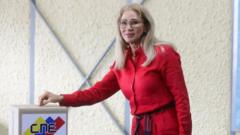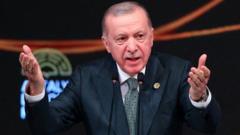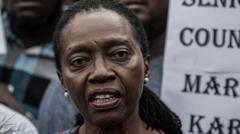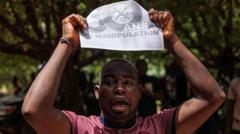Recent constitutional changes are prompting fears that President Faure Gnassingbé may secure indefinite power following his appointment to a new executive role.
**Togo's Leadership Faces Criticism as New Role May Ensure Gnassingbé's Long-Term Rule**
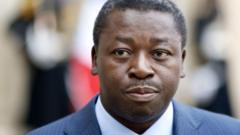
**Togo's Leadership Faces Criticism as New Role May Ensure Gnassingbé's Long-Term Rule**
In a controversial move, Togo's president assumes a new position, raising concerns of prolonged authoritarian governance.
In a noteworthy shift in governance, Faure Gnassingbé has been inaugurated as Togo's "President of the Council of Ministers," an unprecedented role that grants him the highest position within the executive branch of government. This significant appointment emerges amid constitutional reforms that have abolished presidential elections in favor of a parliamentary system, raising alarm over the potential for Gnassingbé to maintain power indefinitely.
Gnassingbé's family has dominated Togo's political landscape for nearly six decades, with Faure stepping into leadership in 2005 after his father, Gnassingbé Eyadéma, who held power for almost forty years. The latest constitutional amendments, which critics denounce as an "institutional coup d'état," were approved by lawmakers in the previous year. Although the government had momentarily halted certain reforms due to widespread public outcry, the recent establishment of this new role signals a firm advance toward solidifying Gnassingbé's control.
The upcoming municipal elections this July will mark the initial voting processes under the revised constitutional framework. While the title of president is now ostensibly ceremonial, experts argue that Gnassingbé's influence is more entrenched than ever, thanks to his position as council president. His political party, the Union for the Republic, secured a commanding majority in the last parliamentary election, capturing 108 of the 113 available seats in the National Assembly, further emboldening his rule amid plummeting public trust.
As Togo navigates these changes, the international community and local opposition groups remain vigilant, assessing whether this consolidation of power will foster stability or perpetuate a cycle of political oppression. The coming elections will serve as a crucial indicator of the political climate in Togo moving forward.








